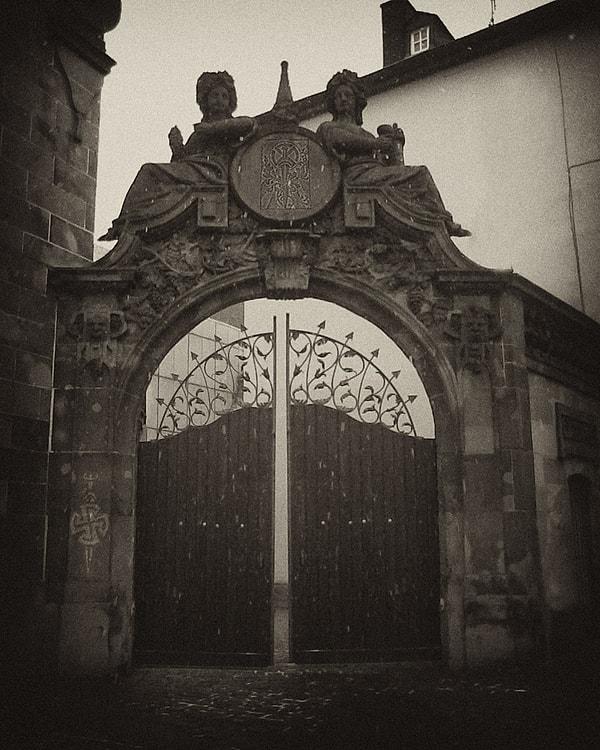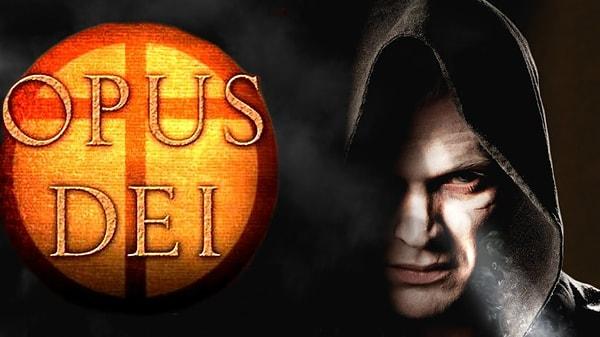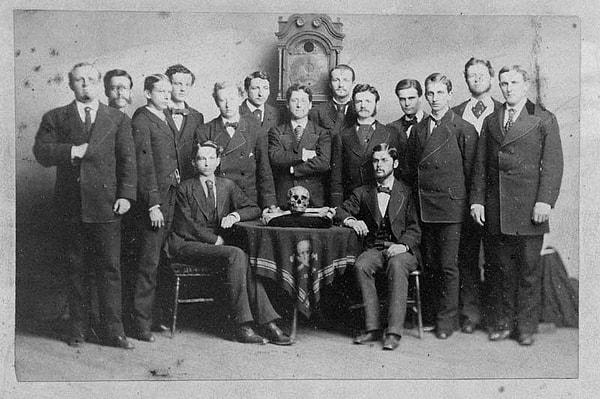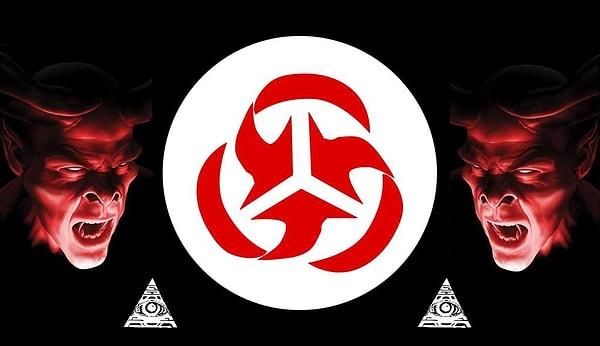Unveiling the Mysteries: A Deep Dive into Secret Societies
Foundations of Secret Societies: Unveiling the Enigmatic Origins
Secret societies have been a source of fascination and speculation for centuries. These groups, which often operate in secrecy, are often shrouded in myth and legend. Some believe that secret societies are powerful and influential, while others believe that they are nothing more than harmless social clubs.
There are many different types of secret societies, each with its own unique history, rituals, and symbols. Some of the most well-known secret societies include the Freemasons, the Illuminati, and the Rosicrucians.
Freemasons
The Freemasons are one of the oldest and most well-known secret societies in the world. The group was founded in England in the 17th century, and its members have included some of the most powerful men in history, including George Washington, Benjamin Franklin, and Winston Churchill.
The Freemasons are a fraternal organization that is based on the principles of brotherhood, equality, and charity. The group's members meet in lodges, where they conduct rituals and ceremonies. The Freemasons also have a system of symbols and codes that are used to identify members and communicate with each other.
Illuminati
The Illuminati is a secret society that was founded in Bavaria in 1776. The group's goals were to promote enlightenment and oppose superstition and religious influence over public life. The Illuminati was outlawed by the Bavarian government in 1785, but it has since become the subject of many conspiracy theories.
Rosicrucians
The Rosicrucians are a secret society that is said to have been founded in Germany in the early 17th century. The group's name is derived from the Latin words "ros" (dew) and "crux" (cross). The Rosicrucians are said to be a group of mystics and philosophers who are dedicated to the pursuit of knowledge and the spiritual enlightenment of humanity.
Theories about secret societies
Secret societies have been the subject of many conspiracy theories. Some people believe that secret societies are controlling the world, while others believe that they are planning a New World Order. There is no evidence to support these claims, but they continue to be popular among conspiracy theorists.
Secret societies have been a part of human history for centuries. These groups continue to fascinate and intrigue people, and they are likely to continue to be the subject of speculation and myth for many years to come.

Secret societies: goals and purposes
Secret societies have been a source of fascination and speculation for centuries. These groups, which often operate in secrecy, are often shrouded in myth and legend. Some believe that secret societies are powerful and influential, while others believe that they are nothing more than harmless social clubs.
History
Secret societies have existed for centuries, dating back to the ancient world. Some of the earliest known secret societies include the Eleusinian Mysteries in Greece and the Mithraic Mysteries in Rome. These societies were often religious in nature and involved initiation rituals and secret knowledge.
Goals and purposes
The goals and purposes of secret societies vary widely. Some societies are focused on social and fraternal activities, while others are dedicated to religious or philosophical pursuits. Some secret societies are even involved in political or criminal activities.
Common goals
- Brotherhood and networking: Secret societies often provide a sense of brotherhood and community for their members. They can also provide a valuable network of contacts for members in business, politics, or other areas.
- Social and charitable work: Many secret societies are involved in social and charitable work. They may donate to charities, volunteer their time, or provide other forms of assistance to those in need.
- Self-improvement and enlightenment: Some secret societies are focused on self-improvement and enlightenment. They may offer their members educational programs, rituals, or other activities designed to help them grow as individuals.
- Political or criminal activity: A small number of secret societies are involved in political or criminal activity. These societies may use their secrecy to plot coups, assassinations, or other illegal activities.
Famous secret societies
Some of the most famous secret societies in history include:
- The Freemasons: The Freemasons are a fraternal organization that is based on the principles of brotherhood, equality, and charity. The group's members meet in lodges, where they conduct rituals and ceremonies. The Freemasons also have a system of symbols and codes that are used to identify members and communicate with each other.
- The Illuminati: The Illuminati was a secret society that was founded in Bavaria in 1776. The group's goals were to promote enlightenment and oppose superstition and religious influence over public life. The Illuminati was outlawed by the Bavarian government in 1785, but it has since become the subject of many conspiracy theories.
- The Rosicrucians: The Rosicrucians are a secret society that is said to have been founded in Germany in the early 17th century. The group's name is derived from the Latin words "ros" (dew) and "crux" (cross). The Rosicrucians are said to be a group of mystics and philosophers who are dedicated to the pursuit of knowledge and the spiritual enlightenment of humanity.
Conspiracy theories
Secret societies have been the subject of many conspiracy theories. Some people believe that secret societies are controlling the world, while others believe that they are planning a New World Order. There is no evidence to support these claims, but they continue to be popular among conspiracy theorists.
Secret societies have been a part of human history for centuries. These groups continue to fascinate and intrigue people, and they are likely to continue to be the subject of speculation and myth for many years to come.
Secret Societies: Rituals and Symbols
Secret societies have been a source of fascination and speculation for centuries. These groups, which often operate in secrecy, are often shrouded in myth and legend. Some believe that secret societies are powerful and influential, while others believe that they are nothing more than harmless social clubs.
One of the most common features of secret societies is the use of rituals and symbols. These rituals and symbols can be used to promote a sense of brotherhood and unity among members, as well as to communicate secret knowledge and teachings.
Rituals
The rituals of secret societies can vary widely, but they often share some common elements. These elements may include:
- Initiation ceremonies: These ceremonies are used to initiate new members into the society. They often involve a series of tests and challenges that the new member must overcome.
- Oaths of secrecy: Members of secret societies are often required to take oaths of secrecy. These oaths bind the members to keep the society's secrets from outsiders.
- Regular meetings: Secret societies often hold regular meetings at which members conduct business, discuss current events, and socialize.
Symbols
Secret societies also often use symbols to identify themselves and to communicate secret messages. These symbols can be found in a variety of places, including the society's regalia, its meeting places, and its publications.
Some of the most common symbols used by secret societies include:
- The square and compasses: These symbols are used by the Freemasons and represent the tools of a stonemason.
- The all-seeing eye: This symbol is used by the Illuminati and represents the eye of God or the eye of providence.
- The pyramid: This symbol is used by many different secret societies and represents the hierarchy of the society.
The rituals and symbols of secret societies are a fascinating and complex subject. They offer a glimpse into the inner workings of these groups and provide clues to their history, beliefs, and goals.
Secret societies: Power and influence
Secret societies have been a source of fascination and speculation for centuries. These groups, which often operate in secrecy, are often shrouded in myth and legend. Some believe that secret societies are powerful and influential, while others believe that they are nothing more than harmless social clubs.
The power of secret societies
Secret societies can be powerful and influential in a number of ways. They can:
- Pool resources and knowledge: Secret societies can provide their members with access to resources and knowledge that would not be available to them otherwise. This can give them a significant advantage in business, politics, or other areas.
- Coordinate action: Secret societies can allow their members to coordinate their actions in order to achieve common goals. This can be a powerful tool for social change or political influence.
- Promote secrecy and silence: Secret societies can promote secrecy and silence among their members. This can make it difficult to track their activities or hold them accountable for their actions.
The influence of secret societies
Secret societies can influence society in a number of ways. They can:
- Shape public opinion: Secret societies can use their influence to shape public opinion on a variety of issues. This can be done through propaganda, infiltration, or other means.
- Control the flow of information: Secret societies can control the flow of information by suppressing or disseminating information as they see fit. This can give them a significant amount of power over public discourse.
- Promote social change: Secret societies can promote social change by advocating for or implementing new policies or ideas. This can have a profound impact on the development of society.
Examples of powerful and influential secret societies
There are many examples of powerful and influential secret societies throughout history. Some of the most well-known include:
- The Freemasons: The Freemasons are a fraternal organization that is based on the principles of brotherhood, equality, and charity. The group's members have included some of the most powerful men in history, including George Washington, Benjamin Franklin, and Winston Churchill.
- The Illuminati: The Illuminati was a secret society that was founded in Bavaria in 1776. The group's goals were to promote enlightenment and oppose superstition and religious influence over public life. The Illuminati was outlawed by the Bavarian government in 1785, but it has since become the subject of many conspiracy theories.
- The Rosicrucians: The Rosicrucians are a secret society that is said to have been founded in Germany in the early 17th century. The group's name is derived from the Latin words "ros" (dew) and "crux" (cross). The Rosicrucians are said to be a group of mystics and philosophers who are dedicated to the pursuit of knowledge and the spiritual enlightenment of humanity.
Secret societies have been a part of human history for centuries. These groups continue to fascinate and intrigue people, and they are likely to continue to be the subject of speculation and myth for many years to come.
Secrets and Mysteries
Secret societies have been a source of fascination and speculation for centuries. These groups, which often operate in secrecy, are often shrouded in myth and legend. Some believe that secret societies are powerful and influential, while others believe that they are nothing more than harmless social clubs.
History
Secret societies have existed for centuries, with some of the earliest known examples dating back to ancient Egypt and Greece. These early societies were often associated with religious or philosophical beliefs, and they often served as a way for members to share knowledge and ideas that were not accepted by the mainstream.
Types
There are many different types of secret societies, each with its own unique history, rituals, and symbols. Some of the most well-known secret societies include the Freemasons, the Illuminati, and the Rosicrucians.
Freemasons
The Freemasons are one of the oldest and most well-known secret societies in the world. The group was founded in England in the 17th century, and its members have included some of the most powerful men in history, including George Washington, Benjamin Franklin, and Winston Churchill.
Theories
Secret societies have been the subject of many conspiracy theories. Some people believe that secret societies are controlling the world, while others believe that they are planning a New World Order. There is no evidence to support these claims, but they continue to be popular among conspiracy theorists.
Symbols
Secret societies often use symbols to identify themselves and communicate with each other. These symbols can be found in a variety of places, including on clothing, jewelry, and buildings. Some of the most common symbols used by secret societies include the pyramid, the eye, and the compass.
Famous members
Many famous people have been members of secret societies, including:
- George Washington
- Benjamin Franklin
- Winston Churchill
- Mark Twain
- Walt Disney
- Harry Houdini
Conclusion
Secret societies continue to fascinate and intrigue people around the world. These groups are often shrouded in secrecy, which only adds to their mystique. While some people believe that secret societies are dangerous and harmful, others believe that they are simply harmless social clubs.



https://en.wikipedia.org/wiki/Secret_society
https://www.smithsonianmag.com/history/secret-societies-you-might-not-know-180958294/
https://www.nationalgeographic.co.uk/history-and-civilisation/2022/07/these-5-secret-societies-changed-the-world-from-behind-closed-doors














































